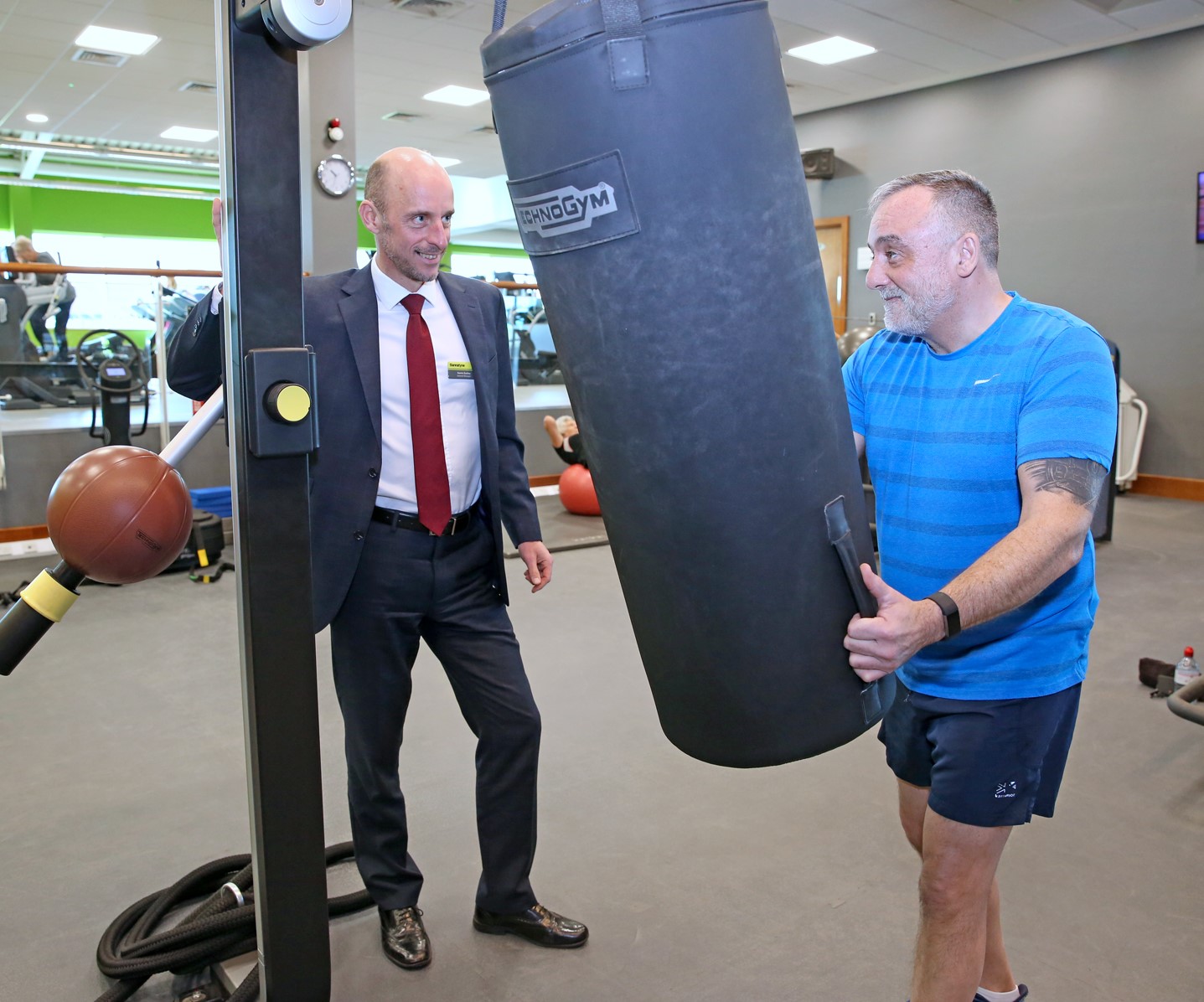A former lance bombardier from York has praised Duncan Bannatyne’s offer of free membership at his health clubs for veterans living with PTSD and highlighted the role fitness plays in battling mental health issues.
51-year-old Robert Duncan, who works as an HGV driver for a bulk animal feed company, served as a regular in the Royal Artillery for eight years and as a reservist in the RAF Regiment for three years. He has decorated service from Northern Ireland, the 1st Gulf War and Afghanistan.
Following his return home from Afghanistan in 2008, Robert found it hard to readjust to life on civvy street and was diagnosed with PTSD in 2013.
Robert said: “I had some horrendous experiences whilst serving in Afghanistan and saw things no one should see, including suicide bombers and losing colleagues to IEDs.
“Fitness is a big part of my recovery and helping to improve my mental health. If I am feeling down, I will go for a run, go to the gym or even a swim.
“If I got to speak to Duncan Bannatyne, I would shake his hand and thank him for the help. The kind gesture of being able to use the gym has really meant a lot to me, and it’s shown that there’s people out there who truly care.”
Duncan Bannatyne gave his backing to the Sunday People’s Save Our Soldiers campaign and offered hundreds of free memberships for veterans with PTSD, with every one of his 72 health clubs taking part.
Duncan, 70, told the Sunday People: “I truly believe our armed forces are the best in the world. I think they do an amazing job and the bravery that comes with doing the job they do is outstanding.
“If I can help in a small way such as giving a free membership to help combat PTSD, then I am more than happy to do that. It is something that is very dear to me.”
Duncan’s dad William endured three-and-a-half years in a Japanese prisoner of war camp in the Second World War and was starving to death before liberation in 1945.
William, an infantryman in the Argyll and Sutherland Highlanders, had been captured while fighting Japan’s invasion of Malaya and Singapore in 1942.
Duncan said: “My father was somebody who did not really talk about his time as PoW. However, over the years I did get bits out of him and when I hear what he endured it makes me so proud to have seen how brave he was.”
Duncan’s military background is one of the reasons he feels strongly about the plight of troops with PTSD.
